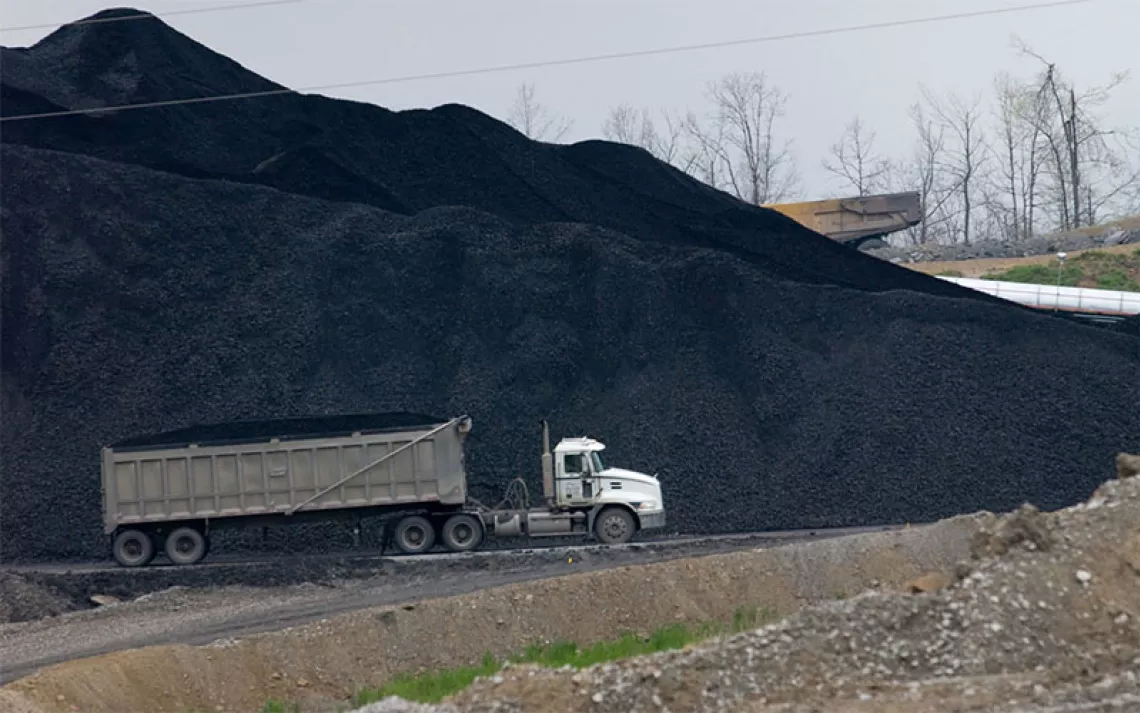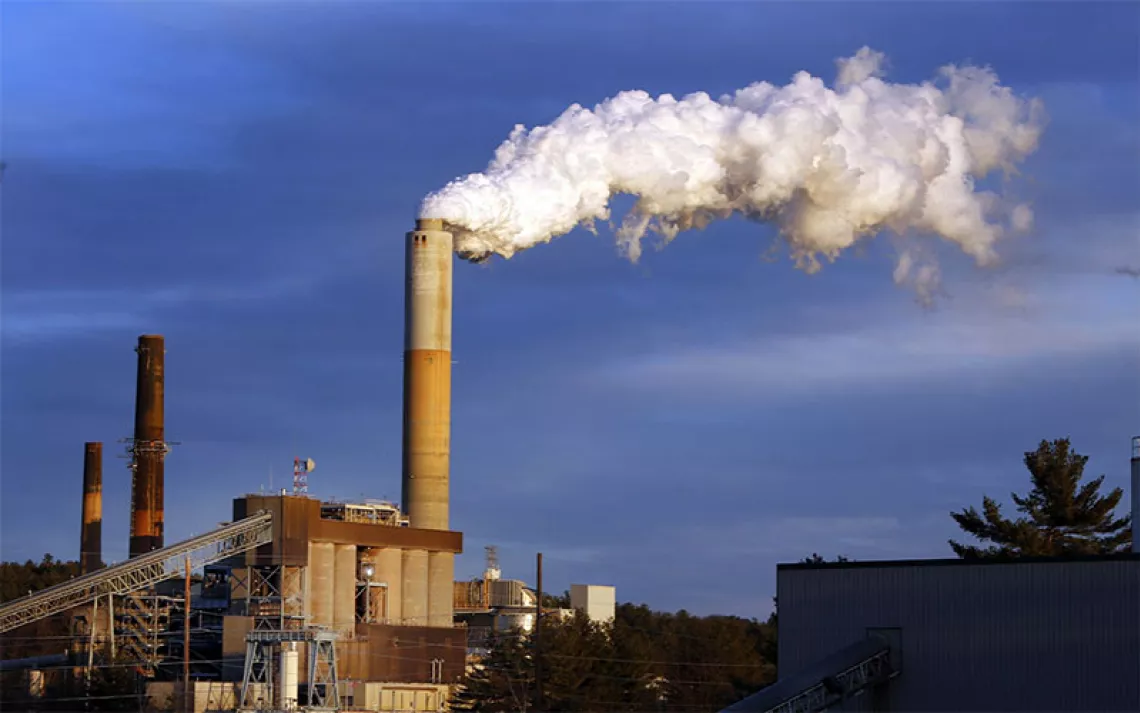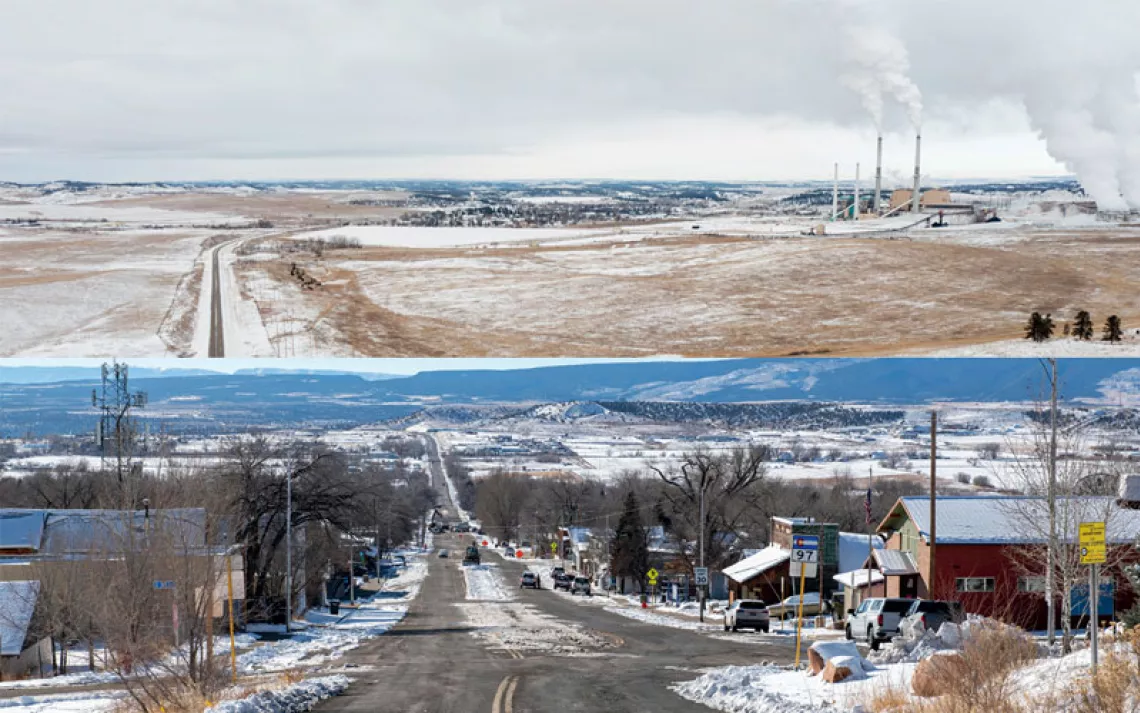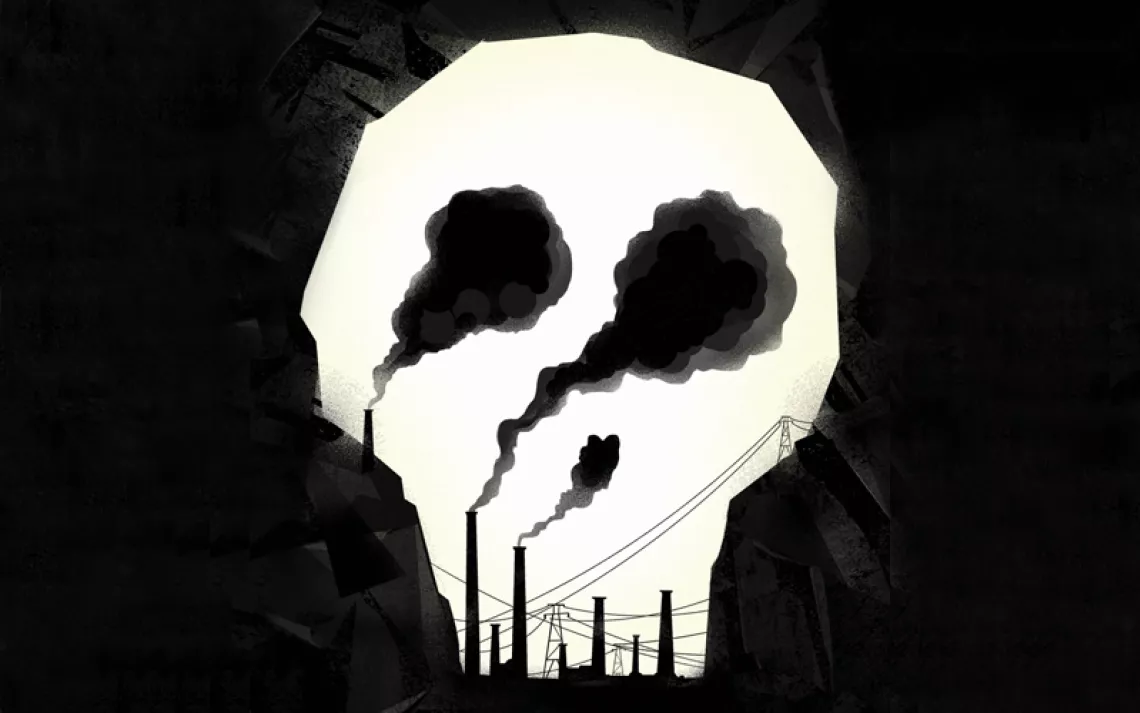Coal Miners Weren’t Happy When Joe Manchin Derailed Build Back Better
The United Mine Workers of America issued a statement criticizing the senator for withdrawing his support from the legislation
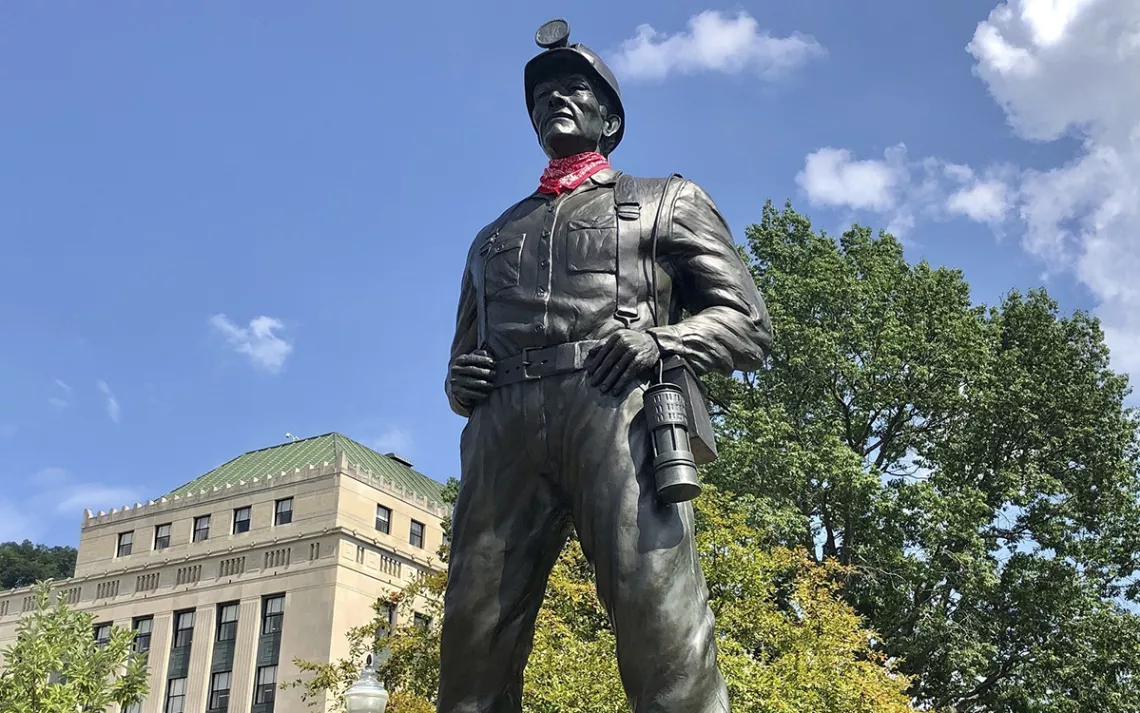
A statue of a coal miner at the West Virginia Capitol in Charleston, West Virginia. | Photo by AP Photo/John Raby
When West Virginia senator Joe Manchin III, a well-known coal baron, withdrew support from the Build Back Better agenda, the Biden administration’s landmark climate and social safety net bill, an influential coal-mining union was quick to respond.
The United Mine Workers of America (UMWA), a labor union formed in 1890 to organize coal miners seeking safe working conditions and fair pay, released a statement by international president Cecil E. Roberts on December 20 characterizing the union’s relationship with Manchin as “long and friendly” but expressing disappointment that the bill didn’t pass. (On the same day, the AFL-CIO, the largest federation of American labor unions, released a similar statement.)
“We urge Senator Manchin to revisit his opposition to the legislation and work with his colleagues to pass something that will help keep coal miners working,” Roberts wrote, “and have a meaningful impact on our members, their families, and their communities.”
Given the UMWA’s history with Manchin—he has been an honorary member since 2020—it was a notable reminder of just how much is at stake for miners and their communities as the president’s signature measure hangs in the balance. The Build Back Better legislation includes important items for the UMWA, like incentives to build manufacturing facilities in post-coal communities, financial penalties for employers who deny workers their rights to unionize, and an extension of the black lung trust fund, a levy paid by coal companies that provides a small monthly payment to miners with pneumoconiosis, a disease caused by coal dust and silica inhalation.
The now $2.2 trillion bill needs the vote of every Democratic Senator to be passed into law (the bill has already cleared the House). For months, Manchin has thrown around disproportionate influence in the fight for passage, whittling down clean energy pillars of the bill and then refusing to pass what was left. On December 19, Manchin caused a public rift with the White House when he announced on Fox News Sunday that he wouldn’t support the bill because it was still too costly. White House press secretary Jen Psaki responded by saying his comments represented “a sudden and inexplicable reversal in his position and a breach in his commitments to the president.”
Because the bill hasn’t passed, black lung funding was cut in half on January 1. The UMWA is concerned that as the deficit increases—now roughly $6 billion—a future Congress could cut benefits to the 4,000 recipients who officially suffer from the condition. Manchin has sponsored black lung legislation in Congress that would extend the black lung benefit for 10 years, but the legislative opportunities for passing such a law without attaching it to another omnibus bill are rare.
Although Manchin is himself a descendent of coal miners, he profits from the coal industry. Manchin’s family business selling waste coal to power companies earns him millions, and according to The New York Times, he’s received “more campaign donations from the oil, coal, and gas industries than any other senator in the current election cycle.”
The statements from AFL-CIO, and more influentially, the UMWA, show the division of influence between bosses—the millionaire and billionaire coal company owners who oppose the Build Back Better agenda—and the laborers who once had high-paying, well-insured jobs but now struggle to make ends meet for their families in a post-coal economy. For years, progressive groups have tried to find solutions for these laborers by advocating for a just transition, an economic road map for replacing jobs from extractive industries like coal mining with jobs in clean energy industries like solar power and agriculture with close-to-equivalent pay.
Phil Smith, director of communications and government affairs for the UMWA, says miners need to be able to walk out of a mine one day and into an equivalent employment situation the next for a just transition to succeed, but he says he hasn’t seen evidence of it yet. Today, there are only 35,000 hourly coal miners working, down from 90,000 in 2010. The loss of jobs, along with the loss of coal royalties as companies declare bankruptcy, translates into a decline in taxable income that has left towns, counties, and the state without the revenue to conduct basic maintenance.
“The net effect on communities where [coal miners] live is devastating. There are whole areas of southern West Virginia, and elsewhere, where counties can’t afford EMTs or sheriffs anymore. Roads and bridges are crumbling and schools are falling apart because nothing has been done for the loss of personal and taxable income going into these communities,” Smith says.
Smith wants the public to understand that people take coal mining jobs because “those are by far the best jobs in their communities by orders of magnitude, so when you get a coal-mining job in Appalachia or southern Illinois or Wyoming, you take it.”
Coal miners who lose their jobs have to take two or three jobs to make up the income, “but they still don’t have health benefits or pensions, those sort of things you get at a union coal mine,” Smith says.
Rick Altman, district 31 international vice president, the largest active membership of the UMWA covering northern West Virginia and eastern Ohio, spent 30 years as an underground coal miner. During a layoff in the 1980s, he had other jobs—factory worker for a pipe manufacturer, hospital orderly, Safety Town instructor teaching four- and five-years-olds about seat belts and stranger danger—but coal mining was by far the best-paying position where Altman lives in Wheeling, West Virginia. He spent half his career as a miner operator (the machine that extracts the coal), leading a small crew that he says he was closer to than his own family: “I never had that feeling of camaraderie and brotherhood like I had there,” Altman says.
He agrees with Smith that a just transition hasn’t reached West Virginia. He says no new economic ventures in his region have brought comparable industries—not solar panels, windmills, nuclear plants, or natural gas pipelines. “I’ve heard this rhetoric [about economic transition] since 1977,” Altman says. “I was 19 then, and I’m 64 now, and I haven’t seen it yet. The previous president [Trump] talked about the same thing, and I didn’t see anything.”
In October, Sean O’Leary, senior policy analyst for the West Virginia Center on Budget and Policy, told Sierra that the Build Back Better agenda was fairly popular among all West Virginians, including miners, not only for the employment programs and manufacturing incentives but also for the improved social safety net it could provide. According to the center, one in six adults and one in five children experience poverty in West Virginia, because of a lack of well-paying jobs and investments in working families. These high poverty rates and a dearth of jobs have pushed residents out: West Virginia is the only state to have consistently lost population since 1950.
West Virginians like Aileen Curfman, vice president of the West Virginia Chapter of the Sierra Club, support the agenda as a means to rebuild their declining economy while also addressing the impacts of climate change. She says her friends and neighbors are “completely fed up with Joe Manchin,” for withdrawing his state’s support.
“He says he’s not hearing from his constituents, but I personally have called almost every day for months and no one picks up the phone in either his local office or his DC office,” says Curfman. “So it’s not because his constituents aren’t trying to be heard.”
Curfman recognizes bridges need to be built between unions like the AFL-CIO and UMWA and Sierra Club members. “In the past, many of the things the Sierra Club wanted to do to improve the environment would leave coal miners and chemical workers and other workers high and dry with no source of income,” says Curfman. “We realized folks who do those things for a living have been victimized by the same system that is polluting the air and water and creating climate change.”
Altman says he supports the science of climate change (“I’m not an ostrich; my head’s not in the sand”) but he wants to see infrastructure investments from legislation like the Build Back Better agenda that cut carbon emissions while providing jobs. “Nobody loves the surface more than a coal miner,” Altman says. “We hunt, we fish, we camp, we farm, we ranch. We’re probably [some of] the biggest conservationists out there.”
 The Magazine of The Sierra Club
The Magazine of The Sierra Club
